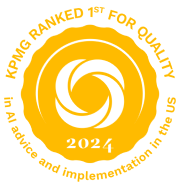How AI Agents Are Transforming Strategic Workforce Planning
AI agents are revolutionizing workforce planning by integrating human and digital workers, enhancing collaboration, and securing critical skills for organizational success.
AI-powered digital workers, including AI agents, are rapidly transforming traditional workforce planning approaches. Organizations must now shift their strategies to accommodate both human and digital workers, focusing on skill acquisition rather than role filling. This evolution has significant implications for HR leaders and business stakeholders.
The Shift to Strategic Workforce Planning
Traditional workforce planning methods are becoming obsolete. A more effective approach is strategic workforce planning, which identifies critical tasks, required skills, and optimal sources—human or digital—to meet organizational goals. Some companies are adopting total workforce planning, incorporating broader market data and trends.

Strategic workforce planning aligns workforce capabilities with strategic objectives, requiring collaboration across finance, HR, and operations. This method minimizes attrition, optimizes staffing, and improves resource allocation, reportedly saving organizations an average of 10% of their annual labor budget.
AI Agents in Action
- Healthcare: AI agents manage staff certifications and make real-time staffing decisions based on patient needs, reducing managerial burdens and improving care delivery.
- Project Management: AI enhances forecasting and resource allocation, preventing talent loss and maximizing efficiency.
Build, Buy, Borrow, or Bot?
Organizations must decide how to acquire needed skills:
- Buy: Hire external talent for hard-to-develop skills.
- Build: Upskill current employees to foster loyalty and engagement.
- Borrow: Use contractors for short-term needs.
- Bot: Leverage digital labor, including AI agents, for autonomous or collaborative tasks.
Total Workforce Planning
Traditional workforce planning relied on internal data, but total workforce planning incorporates external market insights. AI agents analyze scenarios, recommend job redesigns, and identify industry trends affecting talent availability.

Key Factors in Strategic Staffing Decisions
- Budget: Assess cost-effectiveness of AI automation vs. hiring/training.
- Timing: Determine if skills are needed immediately or can be developed over time.
Related News
AWS extends Bedrock AgentCore Gateway to unify MCP servers for AI agents
AWS announces expanded Amazon Bedrock AgentCore Gateway support for MCP servers, enabling centralized management of AI agent tools across organizations.
CEOs Must Prioritize AI Investment Amid Rapid Change
Forward-thinking CEOs are focusing on AI investment, agile operations, and strategic growth to navigate disruption and lead competitively.
About the Author

Dr. Sarah Chen
AI Research Expert
A seasoned AI expert with 15 years of research experience, formerly worked at Stanford AI Lab for 8 years, specializing in machine learning and natural language processing. Currently serves as technical advisor for multiple AI companies and regularly contributes AI technology analysis articles to authoritative media like MIT Technology Review.
